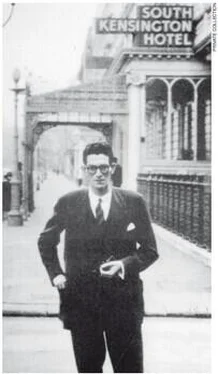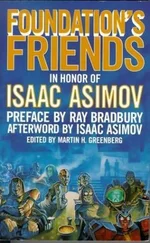Ben Macintyre - A Spy Among Friends
Здесь есть возможность читать онлайн «Ben Macintyre - A Spy Among Friends» весь текст электронной книги совершенно бесплатно (целиком полную версию без сокращений). В некоторых случаях можно слушать аудио, скачать через торрент в формате fb2 и присутствует краткое содержание. Год выпуска: 2014, ISBN: 2014, Издательство: Bloomsbury Publishing, Жанр: Старинная литература, на английском языке. Описание произведения, (предисловие) а так же отзывы посетителей доступны на портале библиотеки ЛибКат.
- Название:A Spy Among Friends
- Автор:
- Издательство:Bloomsbury Publishing
- Жанр:
- Год:2014
- ISBN:9781408851746
- Рейтинг книги:5 / 5. Голосов: 1
-
Избранное:Добавить в избранное
- Отзывы:
-
Ваша оценка:
- 100
- 1
- 2
- 3
- 4
- 5
A Spy Among Friends: краткое содержание, описание и аннотация
Предлагаем к чтению аннотацию, описание, краткое содержание или предисловие (зависит от того, что написал сам автор книги «A Spy Among Friends»). Если вы не нашли необходимую информацию о книге — напишите в комментариях, мы постараемся отыскать её.
A Spy Among Friends — читать онлайн бесплатно полную книгу (весь текст) целиком
Ниже представлен текст книги, разбитый по страницам. Система сохранения места последней прочитанной страницы, позволяет с удобством читать онлайн бесплатно книгу «A Spy Among Friends», без необходимости каждый раз заново искать на чём Вы остановились. Поставьте закладку, и сможете в любой момент перейти на страницу, на которой закончили чтение.
Интервал:
Закладка:
Philby duly sent a report to Moscow. It described Britain’s spies in the Soviet Union with typical bluntness: ‘There aren’t any.’ The station chief of MI6 in Moscow had not recruited a single major spy in the Soviet Union, Philby reported, and had only a few minor informants, mostly Poles. The USSR, moreover, was ‘tenth on the list of countries to which agents are to be sent’. The files showed there was no British spy network in Soviet Russia, no MI6 espionage campaign, and ‘no Soviet citizens whatsoever who worked as secret agents either in Moscow or anywhere else on Soviet territory’. The report was received with incredulity; Moscow’s paranoia, and sense of self-importance, combined to provoke a reaction of furious disbelief. The Soviet Union was a world power and MI6 was the most feared intelligence organisation in the world; it therefore stood to reason that Britain must be spying on the USSR. If Philby said otherwise, then he must be lying. That Britain could conceivably relegate the mighty Soviet state to number ten on its espionage target list was an ‘obvious absurdity’ (and frankly quite wounding). An outraged Soviet intelligence officer took a red pen, and scrawled two large and angry question marks over the report. Philby’s assertion was ‘highly suspicious’; his failure to corroborate expectations was ‘dubious’; henceforth he must be ‘tested and retested’. In truth, British intelligence was overwhelmingly focused on the Nazi threat, and since Moscow had become an ally the Foreign Office had imposed strict restrictions on covert activities inside the Soviet Union. But when Anthony Blunt confirmed that MI6 had no secret agents in the USSR, he too fell under suspicion; Philby and Blunt must be in league. And so began a bizarre situation in which Philby told Moscow the truth, and was disbelieved, because the truth contradicted Moscow’s expectations.
Philby’s successful and unauthorised foray into the Soviet files was a remarkable feat of espionage, and a complete waste of time: it not only deepened Moscow’s suspicions, but very nearly ended Philby’s career. One morning, Bill Woodfield, of the beetroot complexion, sent a polite note asking him to return the Soviet source books; Philby responded that he had already done so. Woodfield, a sloppy drunk but a meticulous librarian, said that there was only one Soviet source book on the shelves, and the registry had no record of the second volume being returned. Philby was convinced the books had been sent back to the repository, but nonetheless turned his office ‘upside down’ in a fruitless search for the missing volume. He met Woodfield at the King Harry ‘to discuss the mystery over a few pink gins’ and discovered to his horror that, under registry rules, C would have to be informed of the missing records. This was Friday. Woodfield said he would send a memo on Monday. Nothing to worry about, said Bill: just paperwork. Philby was now in deep peril. Menzies might understand, even applaud, his interest in MI6 agents in Spain and Portugal, but he would surely wonder what on earth his protégé was doing with material on the Soviet Union, an area ‘far outside the normal scope of [his] duties’. At best Philby would have some tricky explaining to do; at worst, he was sunk.
After a weekend of simmering panic, Monday came, and with it a last-minute reprieve. Woodfield’s secretary, who had been ill with flu for a few days, returned to work and explained that she had amalgamated the two source books into one volume to save shelf space. Philby had indeed returned the files. Woodfield offered profuse apologies for the embarrassing mix-up, over ‘another flood of pink gin’. Had Woodfield’s secretary been slightly more ill, for longer, or had Woodfield been a little less pickled, then Philby’s story would have ended then and there. But his luck held: he had escaped a Republican shell in Spain, dodged the clue furnished by the defector Krivitsky, and narrowly avoided exposure for trawling the Soviet files. ‘Luck played an enormous role in my life,’ he later wrote. ‘But you have to know how to use luck.’
*
Nicholas Elliott was becoming restless. Life in St Albans was pleasant enough, but ‘cloistered’. Running counter-intelligence operations in occupied Holland involved a great deal of memo-writing for meagre results, and nothing in the way of action. The world of intelligence, he concluded, was divided into ‘those who sit at desks at home analysing and evaluating the information as it comes in, and those who go out into the highways and byways of the world in order to get hold of it’. Philby was of the former sort, a gifted analyst and collator of facts, but Elliott belonged to the latter type, and he was ‘anxious to get away to another theatre of war’. He longed to travel, partly in reaction to his father’s acute distrust of ‘abroad’. (‘All foreigners are bloody unless they climb mountains,’ Claude insisted, ‘and Germans are bloody even if they do.’) Elliott hungered for risk. With Philby’s support, he began lobbying for a more active role in the field, preferably somewhere dangerous. In the spring of 1942, Elliott was summoned to Cowgill’s office and told he would soon be heading to Cairo, and from there to Istanbul as Section V’s representative in Turkey. At the age of twenty-six, Nicholas Elliott would be running counter-espionage operations in an espionage hothouse, for Turkey was neutral and, like Spain and Portugal, the scene of a fierce, secret war. ‘I was delighted,’ he wrote. Philby threw a farewell party for him. The next day, 11 May 1942, Acting Lieutenant Elliott climbed, somewhat unsteadily, up the gangplank of a 5,000-ton passenger cargo vessel in Liverpool docks, part of a forty-ship convoy bound for Africa.
Elliott spent the three-week passage to Lagos playing bridge with an SOE officer ‘who was being sent out to Angola to blow things up’, taking his turn to man the ancient Japanese gun mounted on the stern, and tucking into a ‘well-stocked bar’. Although never a drinker in Philby’s league, Elliott was a keen tippler – despite his diabetes, which he treated merely by avoiding sugar. Most of his colleagues were entirely unaware that he was diabetic; with typical recklessness Elliott was not about to let his health stand in the way of a good time. When the ship put in at Freetown, he was greeted on the quayside by Graham Greene, who was now the somewhat disgruntled MI6 representative in Sierra Leone – a good place to gather material for fiction, but an intelligence backwater. Greene took one look at Elliott and proclaimed him ‘the tattiest army officer I had ever seen’. Over a drink, Greene explained that his principal concern was ‘the shortage of contraceptives in Sierra Leone’, a problem Elliott ‘managed to alleviate through the generosity of some of our passengers’. Elliott assumed these were for Greene’s personal use: in fact, the future novelist had set up a ‘roving brothel’ to entice secrets out of ‘two lonely Germans suspected of spying on British shipping’, and his brothel workers were demanding protection from venereal disease.
In Lagos, Elliott transferred to a Dakota transport plane, and five days later he reached Cairo, after hopscotching across Africa via Kano, Fort Lamy, El Fasher and Khartoum. On reporting to Intelligence Headquarters, Elliott was informed that his first job was to take a lorry-load of confidential files to Jerusalem for safekeeping, before travelling on to Beirut. He would then catch the fabled Taurus Express to Turkey.
The elderly train puffed slowly up the Taurus Mountains and then ambled gently across the Anatolian plateau to Ankara, and on to Istanbul, never exceeding thirty miles an hour and stopping frequently for no discernible reason. The food in the restaurant car was excellent, and Elliott found the journey a ‘delight’, made still more pleasant still by the company of his new secretary, a young Englishwoman named Elizabeth Holberton.
Читать дальшеИнтервал:
Закладка:
Похожие книги на «A Spy Among Friends»
Представляем Вашему вниманию похожие книги на «A Spy Among Friends» списком для выбора. Мы отобрали схожую по названию и смыслу литературу в надежде предоставить читателям больше вариантов отыскать новые, интересные, ещё непрочитанные произведения.
Обсуждение, отзывы о книге «A Spy Among Friends» и просто собственные мнения читателей. Оставьте ваши комментарии, напишите, что Вы думаете о произведении, его смысле или главных героях. Укажите что конкретно понравилось, а что нет, и почему Вы так считаете.












